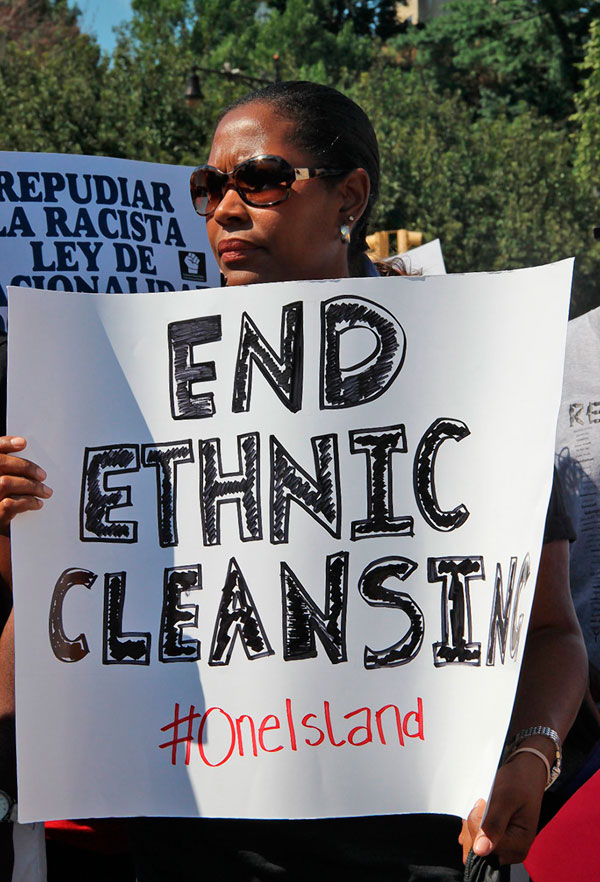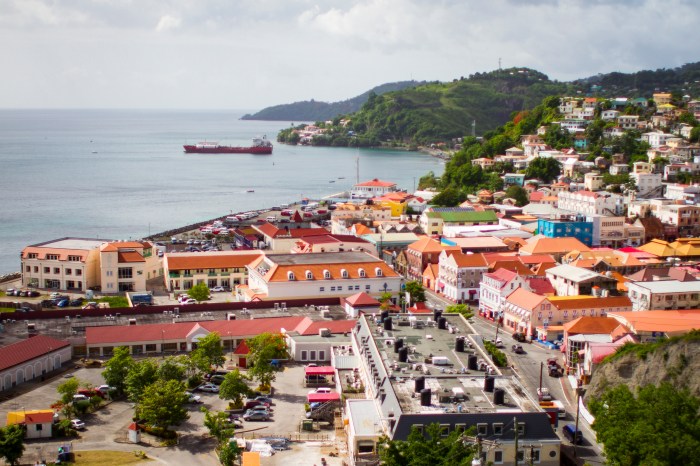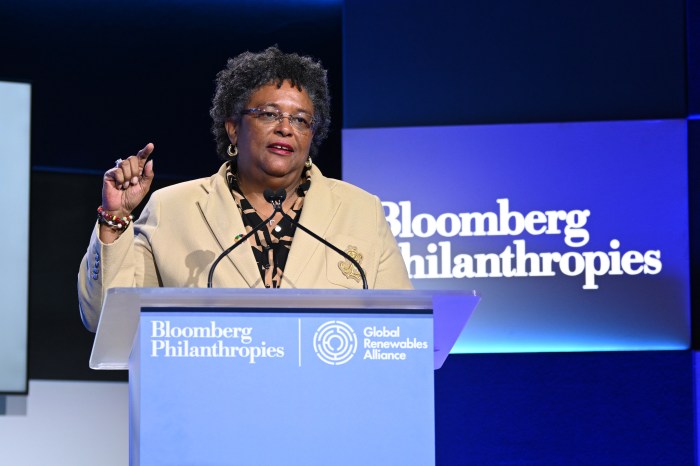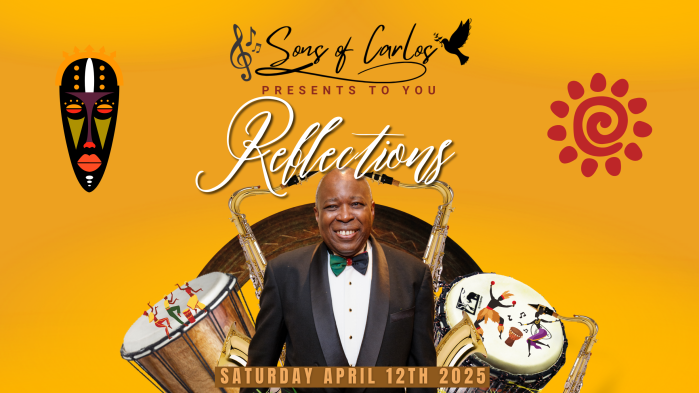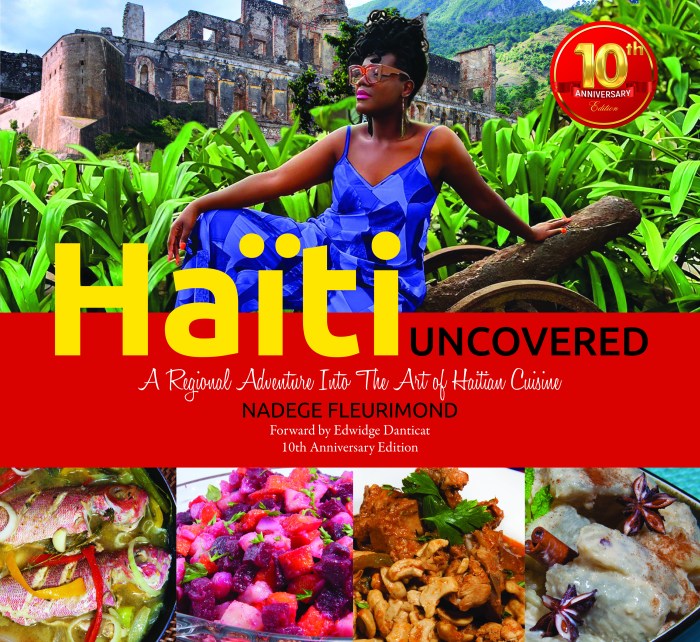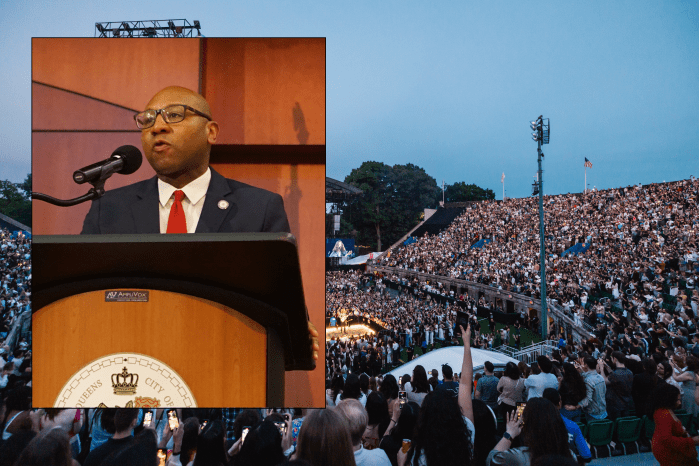The rally began early Friday morning at Grand Army Plaza, held on a weekday so local politicians would attend. There were people of conscience, mainly Haitians, some Dominicans, and other supporters protesting the policies in the Dominican Republic leading to denationalization of Dominicans of Haitian ancestry and their deportations.
Three generations of the St. Vil family, Jessica, her baby in a stroller and her mom, came from Long Island to the rally. They marched with 200 others over the Brooklyn Bridge.
Lionel Legros, an avowed long-time activist said, “We are here to raise the issue of Haitians being expelled from the Dominican Republic–and also dark-skinned Dominicans who thought they were Dominican for a longtime.”
He explained, “The court ruled that since 1929, those of Haitian ancestry born in the Dominican Republic are no longer Dominican. They’re being expelled to a country they don’t know, and (they speak Spanish) to a language they don’t know. They worked in the sugar cane fields and then they say, ‘Oh! We didn’t now you are here. And, they deport them.”
“Until 2010, most people born in the Dominican Republic considered themselves Dominican,” he said.
In 2010, a constitutional reform eliminated birthright citizenship in the Dominican Republic, denying for the first time the nationality of children born in the country to undocumented parents.
The September 2013 Constitutional Court resolution– TC0168/13– retroactively denied Dominican nationality to anyone born after 1929 without one “Dominican” parent. The Court ordered meticulous review of the civil registry.
LeGros explained that next year there will be an election in the DR and President Danilo is “running on an anti-Haitian platform.”
The deadline for registration in a “regularization process” passed on June 16 with the majority of Haitians facing deportation. Since then, roundups and forced deportations, and self-deportations have taken place.
Sophia Contave from the International Campaign to End Apartheid in the Dominican Republic reiterated, “They have generations of families there.
What the Dominican government is saying is, ‘Even though you’ve been here, you speak the language, you’ve been going to the school system, we’re going to rescind your birth certificate.’ They changed their constitution to take people out of their legal status in their own country.”
Arelis Figueroa representing the Latino Ministry of Riverside Church handed out a flyer that read: “We join religious leaders and denominations in the Dominican Republic, United States and around the world, among them the World Council of Churches (WCC) and its 345 member churches, who have denounced this grave human rights violation.”
At the rally, Representative Yvette Clark took the megaphone. “What we’re confronting in the Dominican Republic is a human crisis. This is not a Haitian problem, this is a Dominican problem with a nation turning on its own people and rendering them stateless.”
She continued, “We must speak out and keep pressure on the Dominican Republic to do the right thing.”
Clarke called for a public vote to overturn their constitutional ruling or a fair regularization process without coercion or violence. She suggested that there could be economic sanctions.
Jumaane Williams addressing the protest said, “We are not against the Dominican Republic. We want all Dominicans to stand up with us, for everybody who loves human rights to stand up with us to say: Do not strip people of their citizenship who were born in a country!”
Williams admitted there is a subset who are migrant workers in the Dominican Republic and he drew the connection between the emigrant rights movement in the U.S. and that in the Dominican Republic. “I’m fighting for all Dominicans.”
He led the crowd chanting, “All lives matter! Dominican lives matter! Haitian lives matter!”
After the rally, the hearty group, which kept growing, began its march down Flatbush and over the Brooklyn Bridge to City Hall.
At City Hall Haitian-born Councilman Mathieu Eugene denounced the denationalization of Dominican citizens and the deportations.
Director of Haitian Women for Haitian Refugees, Ninaj Raoul held up a sign that read “Boycott the Dominican Republic, Boycott Dominican tourism.”
“Don’t go to the Dominican Republic! Go anywhere else and enjoy yourself,” she beseeched the crowd. “Join the campaign to boycott tourism in the Dominican Republic because that’s the only power the people have.”
She also said, “We can put pressure on local legislators to put sanctions on the Dominican Republic.”



